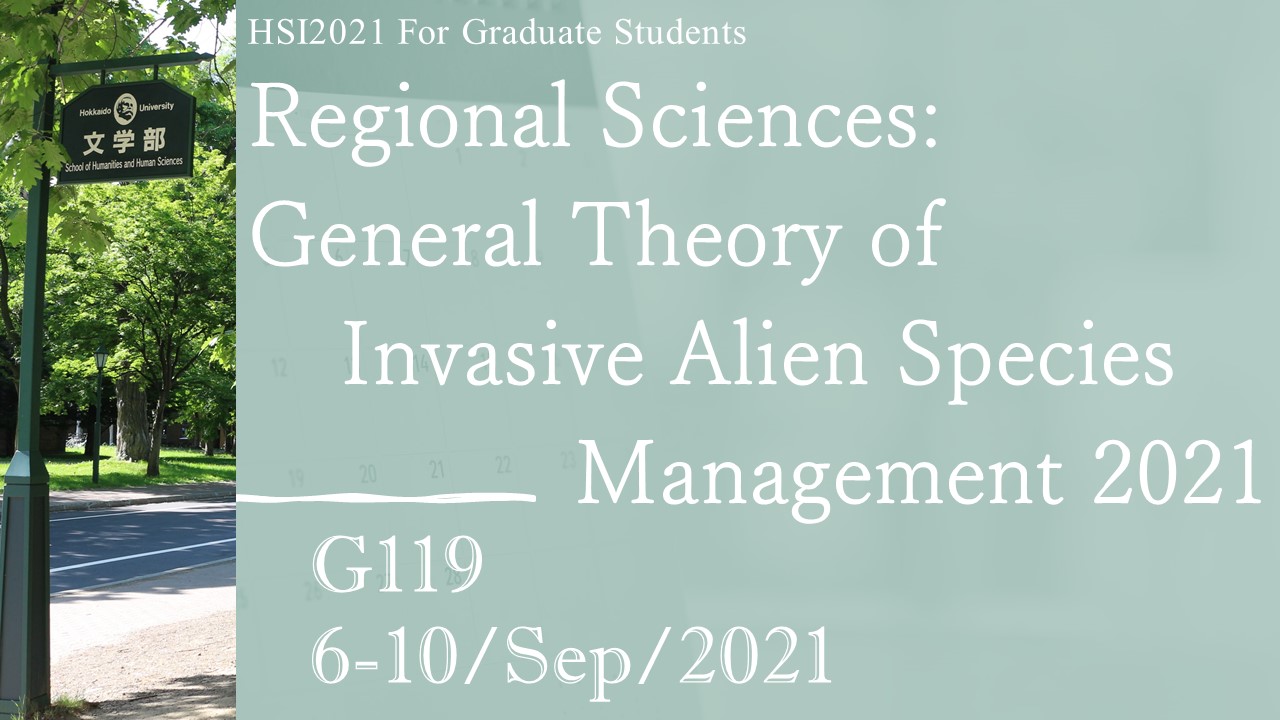
The course will cover principles, legislation, control tools and technologies, and strategies for controlling and eradicating Invasive Alien Species (IAS), illustrated with examples of management from Japan, New Zealand and around the world.
Lecturer
- Professor Tohru IKEDA
Faculty of Humanities and Human Sciences, Hokkaido University - Dr. Phil COWAN
Research Associate, Landcare Research (Wildlife Ecology & Management), New Zealand
Course Detail
Schedule: 2021 September 6th – 10th
Level: Graduate
Credit: 2
Course Format: Online – Live and On Demand
Outline
Invasive Alien Species (IAS) are a concern around the world and the improved management of IAS is needed urgently to prevent or reduce their impacts. Manycountries struggle with this problem with varying amounts of success. New Zealand, because it has very high numbers of IAS, has very highly developed systems and tools and strategies for IAS management. This course provides the latest information about IAS control not only in New Zealand but also globally including recent developments for management of IAS in Japan. Course objective is to learn the fundamental knowledge and techniques for controlling IAS, frameworks for thinking systematically about IAS management actions and outcomes, and methods for developing invasive species control strategies and action plans. The course will also consider social and political aspects of IAS issues which are becoming increasingly important in influencing ability to control species and the tools that can be used.
Course Goals
- Have an understanding why should we eradicate or control IAS
- Have an understanding about the basic approaches to IAS issues: Prevention, EDRR, Eradication and Sustained Control
- Have an understanding of the methods and tools available for IAS control and eradication, including legislation
- Know the criteria for eradication and understand the difference from sustained control
- Have an understanding about social and political aspects of IAS issues


